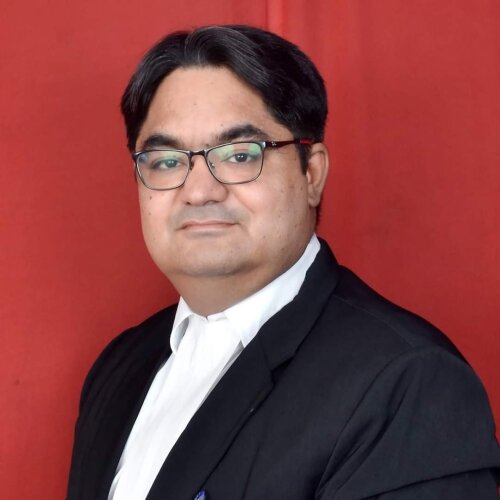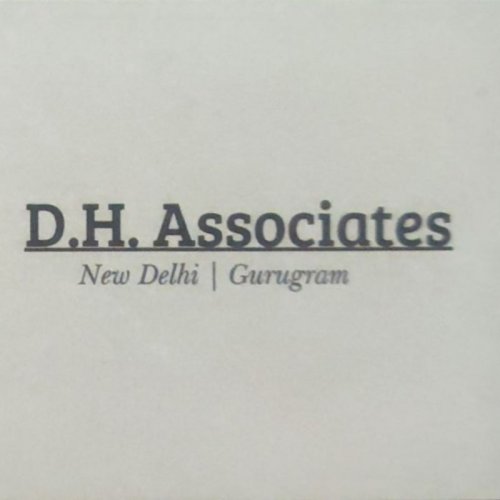Best Art & Cultural Property Law Lawyers in New Delhi
Share your needs with us, get contacted by law firms.
Free. Takes 2 min.
List of the best lawyers in New Delhi, India
About Art & Cultural Property Law in New Delhi, India
Art & Cultural Property Law in New Delhi, India, encompasses a wide range of legal issues related to the protection and regulation of artworks, monuments, historical relics, and cultural heritage. This field of law aims to safeguard India's rich cultural history and ensure that art and cultural assets are preserved for future generations. It governs transactions, provenance, ownership disputes, and the recovery of stolen or illicitly traded cultural properties. Legal frameworks at both the national and state levels, including the Antiquities and Art Treasures Act of 1972, play critical roles in these protections, ensuring cultural preservation and integrity.
Why You May Need a Lawyer
Individuals and institutions may need legal assistance with Art & Cultural Property Law for various reasons, including:
- Acquisition or sale of artworks or cultural property, which requires legal due diligence to ensure transaction legality and authenticity.
- Resolving ownership disputes involving artworks, historical artifacts, or cultural properties, often involving complex provenance issues.
- Advising on compliance with laws and regulations governing the export and import of cultural property from and to India.
- Assisting in the recovery of stolen or illicitly trafficked artworks and returning them to their rightful owners.
- Drafting and negotiating licensing agreements for the display, reproduction, or commercialization of artworks.
- Navigating wills and succession issues regarding inherited cultural property and artworks.
Local Laws Overview
Key aspects of local laws relevant to Art & Cultural Property Law in New Delhi include:
- The Antiquities and Art Treasures Act, 1972: This law regulates the export of antiquities and art treasures from India and requires registration of antiquities.
- The Cultural Property Bill: Designed to protect cultural properties from illegal excavation and trafficking.
- Intellectual Property Laws: These laws protect the rights of artists and creators involved in the creation of new artworks, covering aspects of copyright and moral rights.
- The Indian Penal Code and Indian Telegraph Act: Protect cultural heritage sites and enforcement against vandalism or unauthorized alterations.
- State-specific regulations: Certain states in India, including Delhi, have additional rules concerning the maintenance and protection of historical sites and cultural properties.
Frequently Asked Questions
What is considered cultural property under Indian law?
Under Indian law, cultural property includes artworks, historical monuments, libraries, museum pieces, manuscripts, and objects of historical, artistic, or scientific importance.
How can I verify the authenticity and legality of an art piece or antiquity?
Engage a qualified expert for authentication and conduct due diligence checks, including verifying provenance, registration under the Antiquities Act, and confirming there is no theft or illegal export.
What steps should I take if I find a historic artifact or cultural object?
Report the finding to relevant authorities such as the Archaeological Survey of India to ensure appropriate legal measures and safeguarding.
Is it legal to export art and cultural property from India?
Exporting art and cultural property, especially antiquities, is heavily regulated. You need governmental permission, often requiring proof that the object is not restricted under the Antiquities Act.
How can I protect my rights as an artist in New Delhi?
Obtain copyrights for your work, enable enforcement of moral rights, and possibly register with societies that protect the interests of artists.
What is provenance, and why is it important?
Provenance refers to the documented history of an art piece. It is crucial for establishing ownership legality, value, and authenticity.
Who enforces laws related to cultural property in India?
The Archaeological Survey of India, central and state governments, along with law enforcement agencies, enforce these laws.
What are the penalties for trading in illegal or counterfeit artworks?
Penalties can include fines, imprisonment, and confiscation of assets involved in the trade of illegally or fraudulently obtained cultural property.
What are the protocols for lending artworks to museums?
Enter into a formal agreement detailing rights, obligations, insurance, transportation, security, and duration of the loan in compliance with legal standards.
How can I contribute to protecting cultural heritage in India?
You can support or volunteer with organizations dedicated to preserving cultural heritage, report illegal activities, and advocate for cultural awareness and education.
Additional Resources
For further assistance and information, you may consider the following resources:
- Archaeological Survey of India
- Ministry of Culture, Government of India
- Intellectual Property Office India
- Local Museums and Cultural Institutions
- Non-profit organizations like the Indian Council for Cultural Relations (ICCR)
Next Steps
If you require legal assistance in Art & Cultural Property Law, consider these options:
- Contact a lawyer who specializes in Art & Cultural Property Law in New Delhi for personalized advice and representation.
- Research online databases or visit law firms’ websites to find qualified legal experts in this field.
- Attend seminars or workshops on art and cultural property law to gain insights and network with professionals.
- Reach out to governmental or non-profit organizations that focus on cultural property preservation for guidance and initial support.
Lawzana helps you find the best lawyers and law firms in New Delhi through a curated and pre-screened list of qualified legal professionals. Our platform offers rankings and detailed profiles of attorneys and law firms, allowing you to compare based on practice areas, including Art & Cultural Property Law, experience, and client feedback.
Each profile includes a description of the firm's areas of practice, client reviews, team members and partners, year of establishment, spoken languages, office locations, contact information, social media presence, and any published articles or resources. Most firms on our platform speak English and are experienced in both local and international legal matters.
Get a quote from top-rated law firms in New Delhi, India — quickly, securely, and without unnecessary hassle.
Disclaimer:
The information provided on this page is for general informational purposes only and does not constitute legal advice. While we strive to ensure the accuracy and relevance of the content, legal information may change over time, and interpretations of the law can vary. You should always consult with a qualified legal professional for advice specific to your situation.
We disclaim all liability for actions taken or not taken based on the content of this page. If you believe any information is incorrect or outdated, please contact us, and we will review and update it where appropriate.

















